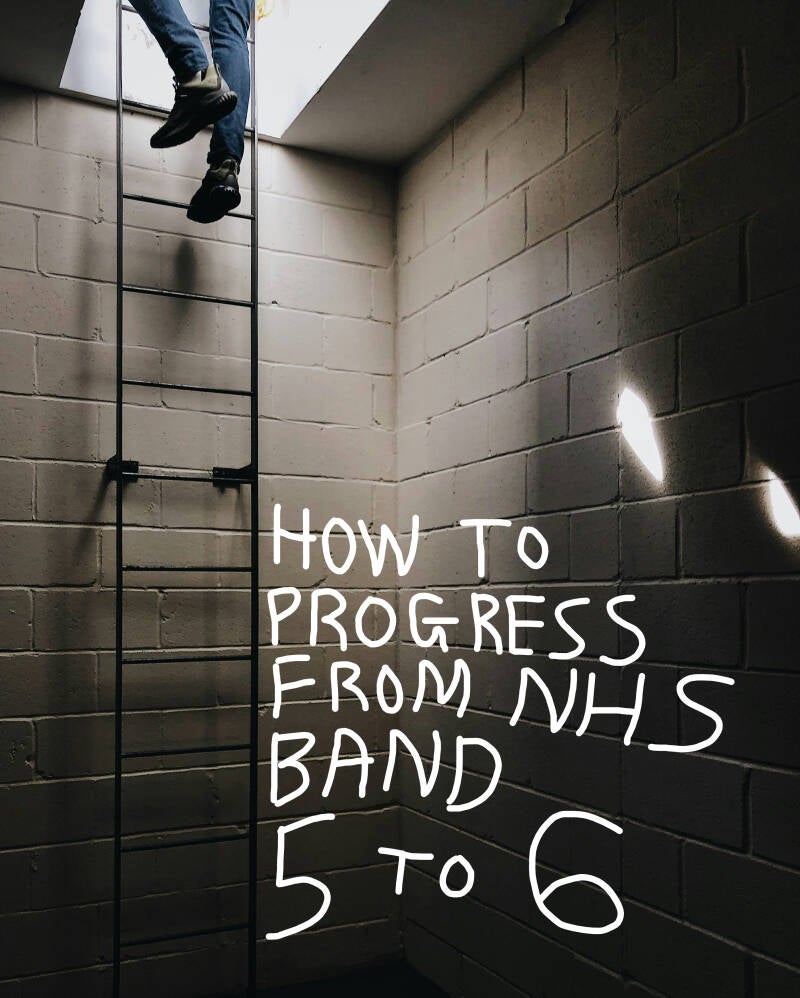
There are no set guidelines or competencies to follow in order to be ready for a band 6 OT job, therefore it can be difficult knowing when and how to make this step. It is largely down to confidence and willingness to accept extra responsibility and complexity of caseload. If you are a band 5 and thinking of applying for a band 6 job, or wondering what you can do to prepare yourself for this role and/or the interview, here are some ideas to get you started.
Supporting students
An expectation as a band 6 will be to support students on clinical placement. Therefore any experience you can gain of this will be really helpful. Make this known to your manager whilst a band 5 and you will likely be very popular. Start small, for example by having another OT’s student with you for a day, helping to prepare educational materials, or by joint supervising with a more experienced OT. To be an educator you will likely need to attend a short course with the hosting university, so it’s worth getting your name down for this as soon as you can.
Audit and service development
Band 6 job interviews will be impressed if you can evidence being involved with service improvement or audit. Therefore any experience you can gain of this, whether through initiating your own project or helping with someone elses, will be a bonus.
Team meetings
Try to step up your involvement in team meetings. Instead of just listening, try to contribute more to build up confidence. Offer to help out with team duties such as taking minutes, following up on actions or even leading meetings.
Look at band 6 job descriptions
Familiarise yourself with a variety of job descriptions for band 6 OT roles. This will get you used to some of the standard essential and desirable criteria that usually feature. If there is a specialism that you are particularly interested in, for example neurology or learning disabilities, look up these band 6 job descriptions for anywhere in the UK- even if you’re not prepared to move for the job, these can highlight more specific skills or experience that you will need to gain, and will give you some concrete goals to work towards.
CPD
Having an up to date, varied CPD profile will be useful in backing up points that you make in interview, and help you feel like you’re top of your game. Ensure that your CPD activities are a range from across all four HCPC requirements: work-based learning, professional activity, formal education and self-directed learning. Although it’s unlikely that you’ll be asked to show CPD during interview, it is probable that a question will come up about it.
Leadership
Now is a great time to start thinking about developing leadership skills for the future, even if that might sound a bit scary at this point. Have a look at the free, online NHS Edward Jenner Programme- you don’t need to complete this to apply for a band 6 job, but it will help you start to think more about leadership.
Research
After having evidence-based learning drilled into you at university, chances are that once qualified and working as a band 5, research won’t get mentioned much day to day unless you go out of your way to find it. And this is what you should start doing. Keep up to date with research in the fields that you work in and are interested in through journal articles, charities and through participation in special interest groups. Many Trusts have a dedicated research team- make your interest known to them, and arrange a day shadowing to see what opportunities they may have.
Add comment
Comments